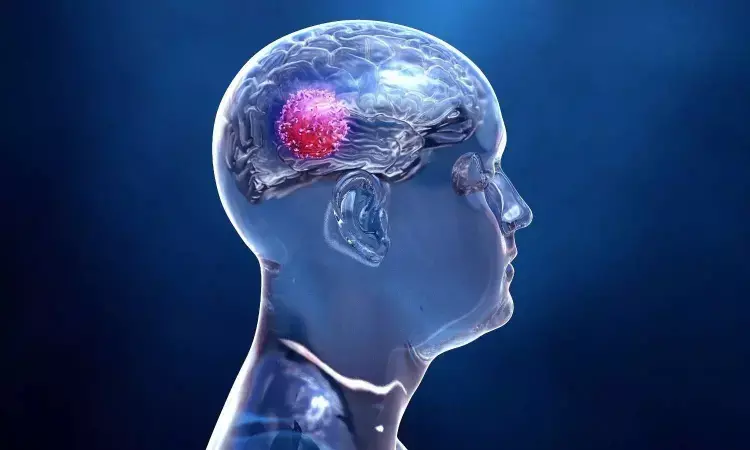- Home
- Medical news & Guidelines
- Anesthesiology
- Cardiology and CTVS
- Critical Care
- Dentistry
- Dermatology
- Diabetes and Endocrinology
- ENT
- Gastroenterology
- Medicine
- Nephrology
- Neurology
- Obstretics-Gynaecology
- Oncology
- Ophthalmology
- Orthopaedics
- Pediatrics-Neonatology
- Psychiatry
- Pulmonology
- Radiology
- Surgery
- Urology
- Laboratory Medicine
- Diet
- Nursing
- Paramedical
- Physiotherapy
- Health news
- Fact Check
- Bone Health Fact Check
- Brain Health Fact Check
- Cancer Related Fact Check
- Child Care Fact Check
- Dental and oral health fact check
- Diabetes and metabolic health fact check
- Diet and Nutrition Fact Check
- Eye and ENT Care Fact Check
- Fitness fact check
- Gut health fact check
- Heart health fact check
- Kidney health fact check
- Medical education fact check
- Men's health fact check
- Respiratory fact check
- Skin and hair care fact check
- Vaccine and Immunization fact check
- Women's health fact check
- AYUSH
- State News
- Andaman and Nicobar Islands
- Andhra Pradesh
- Arunachal Pradesh
- Assam
- Bihar
- Chandigarh
- Chattisgarh
- Dadra and Nagar Haveli
- Daman and Diu
- Delhi
- Goa
- Gujarat
- Haryana
- Himachal Pradesh
- Jammu & Kashmir
- Jharkhand
- Karnataka
- Kerala
- Ladakh
- Lakshadweep
- Madhya Pradesh
- Maharashtra
- Manipur
- Meghalaya
- Mizoram
- Nagaland
- Odisha
- Puducherry
- Punjab
- Rajasthan
- Sikkim
- Tamil Nadu
- Telangana
- Tripura
- Uttar Pradesh
- Uttrakhand
- West Bengal
- Medical Education
- Industry
Losartan may prevent immunotherapy-induced brain swelling in patients with glioblastoma

Patients with glioblastoma-the deadliest type of primary brain tumor-may potentially benefit from immunotherapy medications called immune checkpoint inhibitors that stimulate an immune response against cancer cells.
However, they may also experience brain swelling, or cerebral edema, during treatment.
Cerebral edema is currently controlled by steroids that are highly immunosuppressive and thus, counter the benefit of immunotherapy. Thus, new drugs that control edema safely without causing immunosuppression are urgently needed.
Investigators at Massachusetts General Hospital (MGH) have found in a new research that the blood pressure drug losartan can prevent immunotherapy-induced edema. Further the findings indicate that taking losartan may allow patients to continue receiving immune checkpoint inhibitors without developing adverse effects in the brain.
The findings of the study are published in PNAS.
Through the use of mouse models of cancer, single-cell RNA sequencing, immune cell blocking studies, and analyses of patient imaging scans, the scientists demonstrated that immunotherapy-induced edema results from an inflammatory response that disrupts the blood-tumor barrier, a modification of the blood-brain barrier that occurs with brain cancer.
This response involves the enzymes matrix metalloproteinases 14 and 15, which reside in cells lining tumor-associated blood vessels and induce blood vessel leakage to cause edema.
Experiments revealed that losartan can prevent immunotherapy-related edema by reducing the expression of these enzymes. Losartan also had many other beneficial effects in the tumor environment that enhanced the body’s anti-tumor immune response.
Combined with an immune checkpoint inhibitor, losartan improved survival in mouse models of glioblastoma, curing 20% of mice, which increased to 40% when combined with the standard of care involving chemoradiation followed by surgery.
“Cerebral edema is in and of itself a hallmark of primary brain tumors such as glioblastoma. In glioblastoma patients, we found that immune checkpoint blockade on average increases cerebral edema by approximately 20%. This is not only neurologically detrimental to patients; it can even be lethal,” says senior author Rakesh K. Jain, PhD, director of the E.L. Steele Laboratories for Tumor Biology at Massachusetts General Hospital and the Andrew Werk Cook Professor of Radiation Oncology at Harvard Medical School.
“Most patients who experience edema receive steroids to reduce the brain swelling; however, these drugs are highly immunosuppressive and thus counteract the effects of immunotherapy. Therefore, we have identified a viable pharmaceutical option for edema control that addresses the underlying mechanism of immunotherapy-induced edema, and also sensitizes the tumor microenvironment to immune checkpoint blockade therapy.”
Jain notes that because losartan is safe, effective, and affordable, it can be readily prescribed along with immunotherapy to patients with glioblastoma.
Building on their previous approach published in PNAS in 2020 to identify biomarkers of response to immunotherapy, the team also identified factors in the tumor environment that may predict which patients are most likely to benefit from such a combination.
Reference:
Meenal Datta, Sampurna Chatterjee, Elizabeth M. Perez, Simon Gritsch, Sylvie Roberge, Mark Duquette, Ivy X. Chen, Kamila Naxerova, Ashwin S. Kumar, Kyrre E. Emblem, Mei R. Ng, William W. Ho, Pragya Kumar, Shanmugarajan Krishnan, Xinyue Dong, Maria C. Speranza, Martha R. Neagu, J. Bryan Iorgulescu https://doi.org/10.1073/pnas.2219199120
Dr Kamal Kant Kohli-MBBS, DTCD- a chest specialist with more than 30 years of practice and a flair for writing clinical articles, Dr Kamal Kant Kohli joined Medical Dialogues as a Chief Editor of Medical News. Besides writing articles, as an editor, he proofreads and verifies all the medical content published on Medical Dialogues including those coming from journals, studies,medical conferences,guidelines etc. Email: drkohli@medicaldialogues.in. Contact no. 011-43720751


